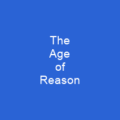What is Logos?
Logos, a term that has woven its way through Western philosophy, psychology, rhetoric, and religion, is more than just a word. It’s a concept that bridges the gap between reason and revelation, logic and faith.
The Roots of Logos
Derived from Ancient Greek ‘λόγος’ (logos), meaning ‘word’ or ‘discourse’, logos has its origins in the Proto-Indo-European root *leǵ-, which encompasses verbs like ‘account’, ‘measure’, ‘reason’, and ‘discourse’. This rich etymology hints at the multifaceted nature of logos, suggesting that it is not just a simple word but a complex idea.
Logos in Western Philosophy
Heraclitus gave special attention to logos, linking it to rational discourse and the world’s rational structure. He saw logos as something common, yet often overlooked by humans who follow what is common rather than personal understanding. This perspective raises a rhetorical question: How many times have we missed the forest for the trees in our daily lives?
Aristotle’s Contribution
Aristotle defined logos as an argument from reason, one of three modes of persuasion alongside ethos and pathos. He viewed logos as enabling humans to perceive and make clear the difference between good and evil through reasoned discourse. This definition invites us to ponder: How do we navigate ethical dilemmas in our modern world?
Logos in Stoicism
The Stoics, beginning with Zeno of Citium, conceived logos as material and identified it with God or Nature. They referred to the seminal logos (‘logos spermatikos’), or the law of generation in the Universe, which was the principle of active reason working in inanimate matter. This concept of logos as a universal force is akin to seeing the world through a lens of interconnectedness.
Philo and Christianity
In Jewish philosophy, Philo used logos to mean an intermediary divine being or demiurge, bridging the gap between God and matter. The term appears in Targums as memra, referring to a manifestation of God. In Christianity, Jesus Christ is referred to as the Logos, representing the complete thought and reality of the infinite Godhead. This idea challenges us to consider: How do we reconcile faith with reason?
Logos in Neoplatonism
Neoplatonists like Plotinus interpreted logos as the principle of meditation, existing between the hypostases of soul, intellect, and the One. This concept of logos as a mediating force invites us to explore the depths of our own minds and souls.
The Concept in Islam
In Sunni Islam, the concept of logos has been given many different names, including ʿaql, al-insān al-kāmil, kalimat Allāh, haqīqa muḥammadiyya, and nūr muḥammadī. The concept of ʿaql was presented in a manner that resembles ‘the late Greek doctrine’ and corresponds to the Logos Christology. This integration of logos into Islamic thought highlights its universal appeal.
Logos in Sufism
In Sufism, the logos is used to relate the ‘Uncreated’ (God) to the ‘Created’ (humanity), and Jesus and Muhammad are seen as personifications of the logos. This perspective invites us to reflect on our spiritual journey and the role of reason in guiding us.
Logos in Modern Psychology
In Jung’s analytical psychology, logos is contrasted with eros as a representation of reason and objective interest versus emotional, non-reason oriented elements. This distinction challenges us to balance our rational and emotional sides for personal growth.
The Role of Logos Today
The concept of logos has evolved over time but remains relevant in today’s world. It serves as a bridge between different disciplines, from philosophy to religion, psychology, and even modern science. By understanding the various interpretations of logos, we can better navigate our complex lives.
So, what is your personal understanding of logos? How do you see it influencing your life and the world around you?

Ultimately, logos is a concept that invites us to explore the depths of reason and understanding. Whether through philosophical inquiry or spiritual reflection, it offers a path towards clarity and wisdom.
You want to know more about Logos?
This page is based on the article Logos published in Wikipedia (retrieved on January 15, 2025) and was automatically summarized using artificial intelligence.







